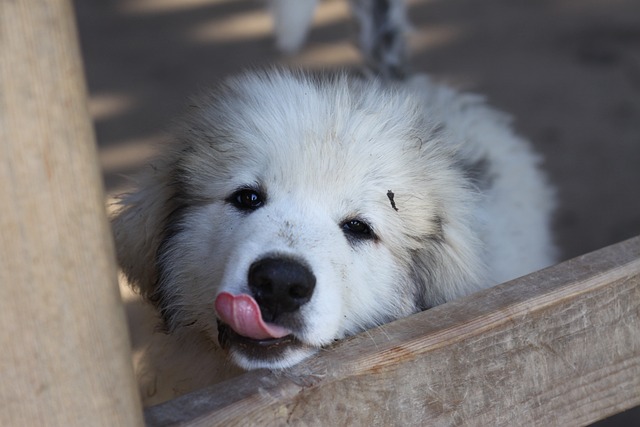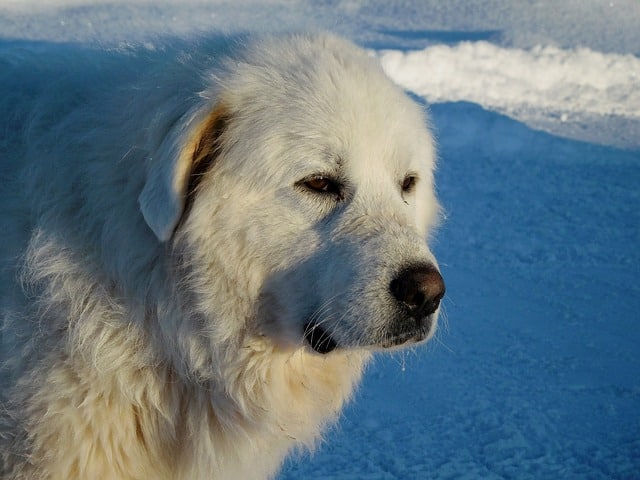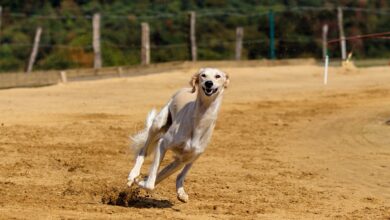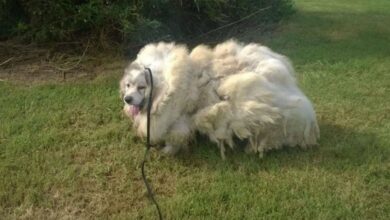5 Great Pyrenees Myths You Should Stop Believing
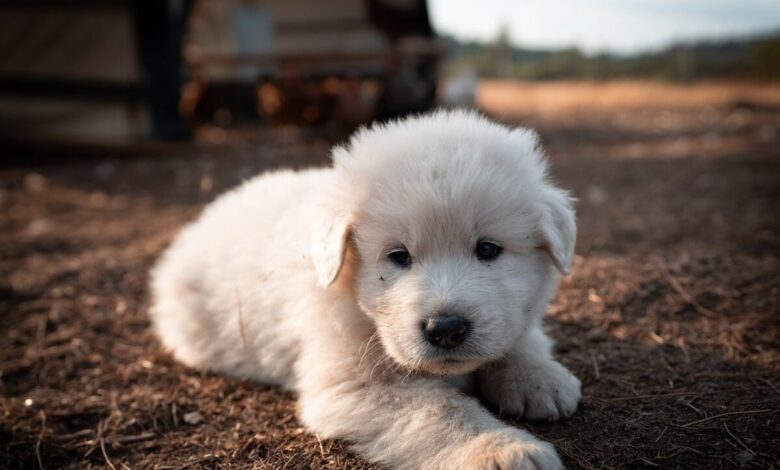
The Great Pyrenees, with their majestic white coat and calm demeanor, are often described as gentle giants. Historically known for their role as livestock guardians in the Pyrenees Mountains, these dogs have become beloved pets around the world. However, misconceptions and myths about the breed persist, leading to misunderstandings about their temperament, behavior, and care needs. In this article, we will debunk five common myths about the Great Pyrenees that you should stop believing.
Myth 1: Great Pyrenees are fierce because they are guard dogs.
Reality:
Great Pyrenees were actually bred to protect livestock from predators like wolves and bears, but aggression is not their defining trait. Instead, they rely on their size, presence, and deep, authoritative bark to deter threats. These dogs are known for their calm, patient, and gentle temperament. In fact, many people are surprised to find that Great Pyrenees are more likely to show affection than aggression, even when faced with a potential threat.
Although their protective instincts are strong, this does not make them naturally aggressive. They are independent thinkers, carefully assessing each situation before acting. When properly socialized, Great Pyrenees will be loving and protective family members, showing loyalty without unnecessary aggression. It is important to note that untrained or unsocialized dogs of any breed can develop behavioral problems, but this is not unique to Great Pyrenees.
Myth 2: Great Pyrenees are lazy dogs.
Reality:
The sight of a Great Pyrenees lounging around the house might lead some to believe that they are naturally lazy. Although they enjoy their free time and often sleep between activities, this breed is anything but lazy. Traditionally, Great Pyrenees were tasked with patrolling vast tracts of land, sometimes traveling miles in a single night while tending livestock.
Today, Great Pyrenees still retain this desire to roam and work. They need regular exercise to stay healthy, both physically and mentally. Lack of stimulation can lead to destructive behaviors, such as excessive barking or digging. They are intelligent dogs who love to work, whether it is guarding the yard, going on long walks with you, or simply going for a daily walk to satisfy their need for exercise.
If you are considering bringing a Great Pyrenees home, it is important to understand their exercise needs. While they may enjoy relaxing with you indoors, they also need plenty of time outside to stretch their legs and explore.
Myth 3: Great Pyrenees do not get along well with other pets.
Reality:
Because of their history as livestock guardians, some people believe that Great Pyrenees do not get along well with other animals, especially smaller pets. In fact, these dogs were bred to guard livestock, and they can extend that protective instinct to smaller animals, including other household pets. With proper introduction and socialization, Great Pyrenees can get along well with cats, rabbits, chickens, and even smaller dogs.
However, it is essential to start socializing your Great Pyrenees with other animals early on. These dogs are naturally nurturing and when raised with other pets, they often take on a gentle guarding role. As with any breed, individual temperaments vary, so taking the time to introduce your dog to other animals and environments is key to a harmonious household.
Myth 4: Great Pyrenees barking constantly for no reason
Reality:
One of the most persistent myths about Great Pyrenees is that they are chronic barkers, making them unsuitable for suburban or urban living. While it is true that Great Pyrenees use barking as a way to communicate and alert their families to potential threats, they do not bark without reason. As livestock guardians, barking is an essential tool for deterring predators, and this behavior remains deeply ingrained in the breed.
However, this does not mean that Great Pyrenees will bark all the time. Proper training and socialization can help your dog understand when to bark and when not to. It is also important to remember that they may bark more often at night, as this is when they are often patrolling their territory for predators.
If your dog barks excessively, it could be a sign that he is bored or anxious. Making sure he has enough physical and mental stimulation, as well as a structured routine, can help reduce unwanted barking. Remember, while you can’t completely eliminate your Great Pyrenees’ natural protective instincts, you can manage them in a way that fits your lifestyle.
Myth #5: Great Pyrenees are too independent to be good family dogs.
Reality:
The Great Pyrenees is known for its independent nature, which can be mistaken for aloofness or indifference. However, this breed forms strong bonds with family members and can be extremely affectionate and loving. Their independence comes from working situations where they are expected to make their own decisions while protecting livestock without constant human direction.
While it is true that Great Pyrenees are not as eager to please as some other breeds, that doesn’t mean they can’t make great family pets. They are calm, patient, and especially good with children. Their protective nature also extends to their human families, and they often take on the role of gentle guardians.
Training a Great Pyrenees requires patience and consistency, as they may not respond to commands as quickly as more docile breeds. They need a family that understands their unique temperament, values their independence, and provides them with the structure and training they need to be a family companion.
The majestic Great Pyrenees mountain range
The Great Pyrenees is a remarkable breed of dog, renowned for its protective instincts, loyalty and gentle nature. However, myths and misconceptions about the breed persist, leading some people to overlook their suitability as a family pet. By dispelling these myths, it becomes clear that the Great Pyrenees are not aggressive, lazy or difficult to train. Instead, they are independent, intelligent and extremely affectionate dogs that thrive in the right environment.
Understanding the history, temperament, and needs of this breed is essential for potential owners. If you are willing to invest the time and effort in training, socializing, and caring for a Great Pyrenees, you will find a loyal and loving companion who will protect and love you for many years to come.
